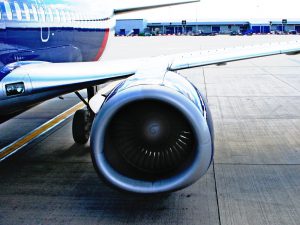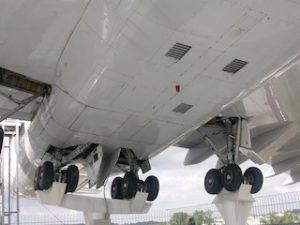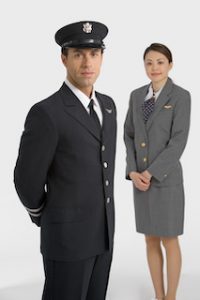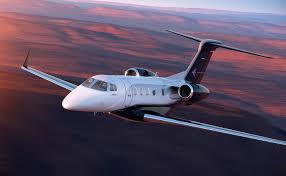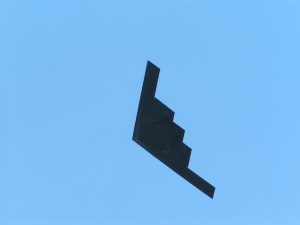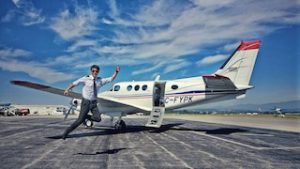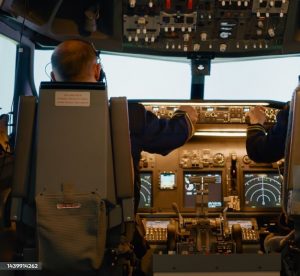The Rigid Airline Pilot Selection Process
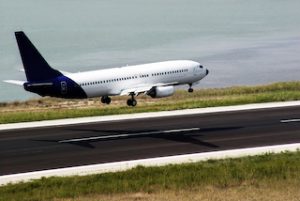 The aviation industry is known for its rigorous standards, and this is especially true when it comes to the selection of pilots for reputable airlines. With competition for these coveted positions intensifying, airlines have developed highly structured and transparent selection processes to ensure they hire only the best candidates. As an aspiring pilot, understanding these selection phases and excelling in each is crucial to securing employment. Honesty, preparation, and performance are key elements that can determine your success. In this article, we will delve into the intricacies of the pilot selection process and explore how Laminar Sim’s training courses are designed to help you achieve the highest possible scores, thereby enhancing your chances of being selected for your dream airline job.
The aviation industry is known for its rigorous standards, and this is especially true when it comes to the selection of pilots for reputable airlines. With competition for these coveted positions intensifying, airlines have developed highly structured and transparent selection processes to ensure they hire only the best candidates. As an aspiring pilot, understanding these selection phases and excelling in each is crucial to securing employment. Honesty, preparation, and performance are key elements that can determine your success. In this article, we will delve into the intricacies of the pilot selection process and explore how Laminar Sim’s training courses are designed to help you achieve the highest possible scores, thereby enhancing your chances of being selected for your dream airline job.
Transparent and rigid selection process
Why airlines use rigorous selection criteria
Airline pilot selection processes are deliberately stringent. Given the responsibility that comes with operating a commercial aircraft, airlines cannot afford to take any risks. The safety and efficiency of their operations hinge on the competence, reliability, and adaptability of their pilots. Therefore, the selection process is designed to meticulously evaluate each candidate’s capabilities, ensuring that only those who meet the highest standards are selected.
The process is also transparent, allowing candidates to understand exactly what is expected of them. This transparency helps to maintain fairness, ensuring that all candidates are judged based on the same criteria. However, the rigidity of the process means that there is little room for error. Candidates must be well-prepared and perform at their best in every phase to progress through the selection stages.
Role of honesty in the Selection Process
One of the critical aspects of the selection process is the emphasis on honesty. Airlines are looking for candidates who demonstrate integrity and trustworthiness. Being truthful throughout all phases of the selection process is not just a moral imperative—it is also a practical one. Any discrepancies or dishonesty discovered during the selection process can result in immediate disqualification. Moreover, the aviation industry is small, and reputations are quickly established. Maintaining an impeccable record of honesty and professionalism is essential for long-term career success.
Breaking down pilot selection phases
The pilot selection process is typically divided into several distinct phases, each designed to evaluate different aspects of a candidate’s suitability for the role. Understanding what each phase entails and how it contributes to the overall selection process is crucial for candidates who wish to excel.
Phase 1: Pre-selection screening
The first phase of the pilot selection process is the pre-selection screening. This phase serves as the initial filter, where airlines assess whether candidates meet the basic qualifications and requirements for the position. During this phase, candidates’ resumes, qualifications, and experience are reviewed to determine their eligibility.
It is during this phase that the importance of presenting an accurate and well-documented history becomes apparent. Any inconsistencies in your resume or application can raise red flags and jeopardize your chances of moving forward. Therefore, it is vital to ensure that all the information you provide is truthful and verifiable.
The pre-selection screening phase often includes an assessment of a candidate’s cognitive abilities, technical knowledge, and sometimes even personality traits. Airlines may use various tools and tests to evaluate whether a candidate has the foundational skills necessary for success in subsequent phases. Scoring well in this phase is crucial as it sets the stage for your progression through the rest of the selection process.
Phase 2: Simulator check flight
The simulator check flight is one of the most critical phases of the selection process. This phase is designed to assess a candidate’s flying performance, particularly their ability to handle a jet aircraft in a simulated environment. The simulator check flight evaluates several key competencies, including:
-
- Jet handling skills: Candidates must demonstrate proficiency in controlling and maneuvering a jet aircraft. This includes handling various flight scenarios, such as takeoff, landing, and dealing with in-flight emergencies.
- Decision-making abilities: Pilots are required to make quick, accurate decisions during flight. The simulator check flight tests a candidate’s ability to assess situations, prioritise tasks, and make decisions under pressure.
- Adherence to Standard Operating Procedures (SOPs): Airlines operate under strict SOPs to ensure safety and consistency. Candidates must demonstrate their understanding of these procedures and their ability to follow them accurately.
Scoring highly in the simulator check flight phase is essential. Airlines place significant weight on this phase, as it directly correlates to a candidate’s ability to perform in a real-world flying environment. To excel in this phase, candidates must have a deep understanding of jet handling and be able to apply this knowledge effectively in the simulator.
Phase 3: Psychometric testing
Psychometric testing is another important phase in the pilot selection process. This phase is designed to evaluate a candidate’s psychological traits, cognitive abilities, and personality characteristics. The goal is to assess whether a candidate has the mental and emotional qualities necessary for the demands of a pilot’s role.
Psychometric tests typically cover a range of areas, including:
-
- Cognitive abilities: These tests assess a candidate’s problem-solving skills, logical reasoning, memory, and spatial awareness. Airlines want to ensure that their pilots can think clearly and critically in high-pressure situations.
- Personality traits: Pilots must possess certain personality traits that are conducive to working in a team, following rules, and maintaining calm under pressure. Psychometric tests evaluate traits such as resilience, conscientiousness, and teamwork.
- Emotional stability: The ability to remain calm and composed in stressful situations is critical for pilots. Psychometric tests assess a candidate’s emotional stability and ability to manage stress.
Scoring well in psychometric testing is important because it provides airlines with insights into your suitability for the demanding role of a pilot. This phase helps airlines determine whether you have the psychological makeup necessary to handle the responsibilities of the job.
Phase 4: Selection panel interview
The final phase of the selection process is the selection panel interview. This phase is typically conducted by a panel of senior airline personnel, including pilots, human resources representatives, and possibly even members of the airline’s management team. The interview is designed to assess a candidate’s overall suitability for the role, including their interpersonal skills, cultural fit, and motivation for becoming a pilot.
During the interview, candidates can expect questions covering a range of topics, including:
-
- Interpersonal skills: Pilots must work closely with other crew members and communicate effectively. The panel will assess your ability to work as part of a team and your communication skills.
- Cultural fit: Every airline has its own culture, and the panel will evaluate whether your personality and values align with the airline’s culture. This includes assessing your adaptability and whether you would integrate well into the airline’s existing team.
- Motivation and passion: The panel will want to understand your reasons for pursuing a career as a pilot and your commitment to the profession. Demonstrating genuine passion and dedication can help you score highly in this phase.
The selection panel interview is often the final hurdle in the selection process. It provides candidates with the opportunity to showcase their strengths and to leave a lasting impression on the decision-makers. Scoring well in this phase is crucial for securing employment, as it often carries significant weight in the final decision-making process.
Scoring and selection
As candidates progress through each phase of the selection process, they are awarded scores based on their performance. These scores are tallied at the end of the process, and the candidates with the highest scores are offered employment first. Given the competitive nature of airline pilot positions, it is essential to achieve the highest possible scores in every phase.
Weighted scoring and key selection criteria
In many airline selection processes, certain phases or aspects of the assessment are weighted more heavily than others. This means that excelling in these key areas can significantly boost your overall score. The selection criteria that typically carry the most weight include:
-
- Flying performance – Jet handling: As the primary responsibility of a pilot is to operate the aircraft safely and efficiently, airlines place significant emphasis on jet handling skills. Scoring highly in the simulator check flight is therefore crucial.
- Interpersonal skills – Multi crew: The ability to work effectively as part of a multi-crew team is essential for airline pilots. Airlines value candidates who can demonstrate strong teamwork and communication skills.
- Aviation system knowledge – Transport jet: A deep understanding of the aircraft’s systems and the ability to apply this knowledge in practical situations is another key criterion. This is often assessed during the simulator check flight and psychometric testing phases.
- Adaptability and suitability to the airline’s culture: Cultural fit and adaptability are important factors that airlines consider when selecting candidates. Scoring well in the selection panel interview can greatly enhance your chances of being offered employment.
Achieving high scores in these weighted areas can compensate for lower scores in other phases, making it possible to succeed even if you are weaker in certain aspects of the selection process. However, the goal should always be to perform consistently well across all phases to maximise your chances of being selected.
Laminar Sim training helps you excel
Laminar Sim offers specialized training courses designed to help aspiring pilots succeed in the airline selection process. With a focus on practical skills, theoretical knowledge, and the development of the right attitudes, Laminar Sim’s courses provide candidates with the tools they need to excel in each phase of the selection process.
Simulator training for jet handling
Laminar Sim’s simulator training courses are specifically designed to help pilots master jet handling skills. Using advanced flight simulators that replicate real-world flying conditions, these courses allow candidates to practice and perfect their flying techniques in a controlled environment. The training covers all aspects of jet handling, from basic maneuvers to complex emergency procedures, ensuring that candidates are well-prepared for the simulator check flight phase.
Multi-Crew Cooperation (MCC) training
Effective communication and teamwork are essential for success in the multi-crew environment. Laminar Sim’s MCC training courses focus on developing these critical interpersonal skills. Through realistic scenarios and exercises, candidates learn how to work effectively with other crew members, make decisions as part of a team, and manage the dynamics of a multi-crew cockpit. This training is invaluable for excelling in both the simulator check flight and the selection panel interview phases.
Aviation system knowledge and technical training
Understanding the complex systems of a jet aircraft is essential for success in the selection process. Laminar Sim’s technical training courses provide in-depth instruction on the various systems and procedures used in modern transport jets. Candidates learn how to apply this knowledge in practical situations, such as during the simulator check flight and psychometric testing phases. This training ensures that candidates are well-prepared to demonstrate their aviation system knowledge and to score highly in these critical areas.
Interview preparation and cultural fit
The selection panel interview is often the final and most important phase of the selection process. Laminar Sim offers interview preparation courses that help candidates develop the skills and confidence needed to succeed in this phase. These courses cover common interview questions, effective communication strategies, and tips for showcasing your strengths and suitability for the airline’s culture. By preparing thoroughly for the interview, candidates can maximise their chances of making a positive impression and scoring highly in this final phase.
Ace the airline selection process
Securing a position as an airline pilot is a challenging and competitive process, but with the right preparation and training, it is possible to succeed. The airline pilot selection process is designed to identify the best candidates by rigorously assessing their skills, knowledge, and suitability for the role. By understanding the selection phases and focusing on achieving high scores in each, candidates can enhance their chances of being selected.
Laminar Sim’s training courses provide aspiring pilots with the tools and knowledge they need to excel in the selection process. From mastering jet handling skills to developing effective communication and teamwork abilities, Laminar Sim’s courses are designed to help candidates achieve the highest possible scores in every phase. With the right training and preparation, you can navigate the rigid airline pilot selection process and secure your place in the aviation industry.

